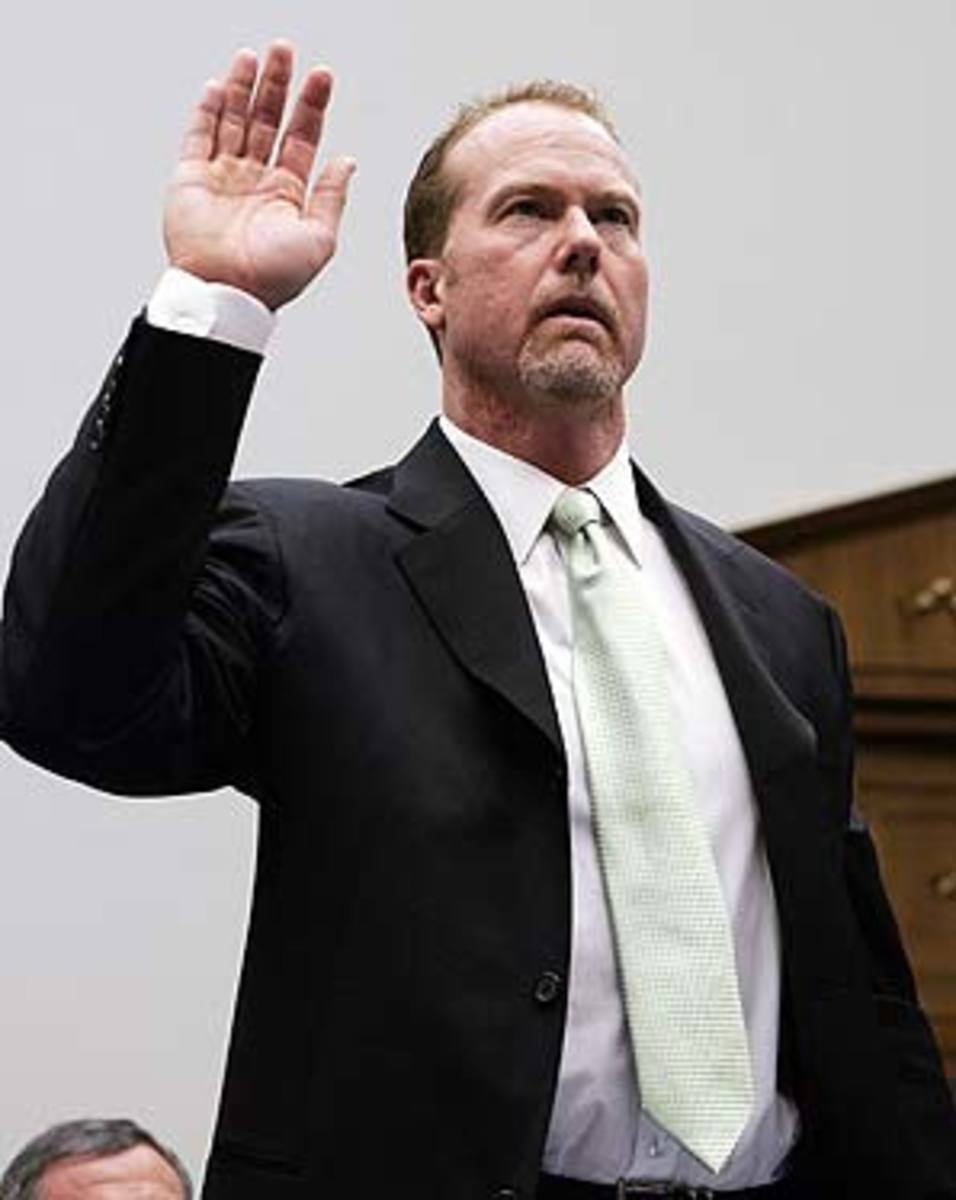Don't expect Bonds, Clemens to offer their own confessions
If those players are named Barry Bonds, Roger Clemens, or Rafael Palmeiro the answer is probably no, at least not for the time being.
Those former players still insist they never intentionally used steroids. They only admit they may have mistakenly taken steroids under the false impression that they were taking legal substances of similar effect. Even if the public disbelieves them, those players have nothing to admit to if they are telling the truth.
Assuming, however, they intentionally used steroids, those players would still have legal reasons to refrain from admitting as much.
Take Bonds. He remains a defendant in a criminal prosecution on perjury and obstruction of justice charges, specifically concerning whether he knowingly lied while testifying before a grand jury in 2003 that he did not use steroids. The trial, U.S. v. Bonds, has been delayed while the U.S. Court of Appeals for the Ninth Circuit considers an appeal by prosecutors that U.S. District Judge Susan Illston mistakenly barred BALCO steroids-test and other implicating evidence as inadmissible hearsay (i.e., unreliable out-of-court statements made by persons not in the trial). The odds are heavily in favor of the Ninth Circuit sustaining Judge Illston's ruling, meaning prosecutors will likely be left with limited evidence to secure a conviction.
If, however, Bonds were to admit to having knowingly used steroids, and to doing so prior to when he testified before the grand jury, he would also admit to having knowingly lied to that grand jury. Given the favorable situation of his trial, Bonds seems unlikely to admit to having committed a crime for which he probably would not otherwise be convicted and which carries with it a possible prison sentence. Therefore, whatever public relations benefit Bonds might obtain by "coming clean" would be outweighed by the legal implications of such an admission.
Clemens is in a similar situation as Bonds, though the legal process for his alleged misbehavior remains at an earlier stage. Clemens insists that despite the implicating evidence of his former trainer, Brian McNamee, and despite the damming statements of several former teammates, including Andy Pettitte and Chuck Knoblauch, he never knowingly used steroids. Clemens said as much, and with great conviction, when he testified before the House Committee on Oversight and Government Reform on February 13, 2008. Following Clemens's controversial testimony, Congressman Henry Waxman, chairman of the committee, and Congressman Tom Davis, the ranking Republican on the committee, requested to then Attorney General Michael Mukasey that Clemens be investigated for perjury and obstruction of justice. The committee, in other words, felt that Clemens may have knowingly lied.
In January 2009, a grand jury was convened in Washington D.C. to investigate whether Clemens knowingly lied. While 12 months have passed since the grand jury convened, grand jury proceedings can last up to 18 months and even longer with six-month extensions. Grand juries are distinctively secretive and procedurally stacked in favor of the government. Only the prosecutor enjoys the right to call witnesses and to present evidence, while the subject of the grand jury investigation -- in this case Clemens -- has very limited capacity to challenge incriminating statements made about him or to otherwise impact the proceeding. If the grand jury concludes there is probable cause that Clemens knowingly lied, then it will indict him for perjury and possibly obstruction of justice, and he would then face a federal trial.
An indictment of Clemens would not necessarily lead to a conviction of Clemens, however, and there are reasons to believe that Clemens could wage an effective trial defense. For one, the physical evidence offered by McNamee, who has furnished syringes and other paraphernalia purportedly containing Clemens's DNA, would be subject to much scientific scrutiny. A jury may also not find McNamee to be credible and could question his motives. Prosecutors would also need to prove Clemens's guilt beyond a reasonable doubt, which is a high threshold. Also, while the Justice Department obtains convictions in the vast majority of the cases it prosecutes, most defendants do not have Clemens's financial wherewithal or celebrity.
Thus if Clemens were to now admit to intentionally using steroids before 2008, he would presumably acknowledge that he knowingly lied to members of Congress and committed perjury. Considering the challenges ahead for a government conviction of Clemens, such an admission at this time seems unlikely.
Palmeiro is in a very different situation, as there is no legal action against him. Even though he was suspended for a positive steroids test in 2005, he insists that he never knowingly used steroids. Palmeiro adamantly said as much when he, along with Mark McGwire and other players, testified before the House Committee on Oversight and Government Reform on March 17, 2005. The date of the hearing is important, since the statute of limitations for federal perjury charges runs five years, meaning he would need to face charges by March 17, 2010 or they would be barred. Although the statute of limitations for a charge can be tolled under certain conditions, the government's capacity to charge Palmeiro with perjury will likely expire in a couple of months. Therefore, any admission by Palmeiro to having knowingly used steroids would likely occur after that date.
Keep in mind, the Justice Department ultimately decides whether, and to what extent, the federal government prosecutes these and other players. For a variety of reasons, including limited resources and unsatisfactory probabilities of securing convictions, the Justice Department could decide to drop its case against Bonds and/or its investigation into Clemens. Admissions by those players to having knowingly used steroids could be viewed favorably as signs of contrition and as helping baseball transition out of the Steroids Era. Those admissions could backfire, though, since they would be admitting to crimes which are fundamentally about lying, not steroids. That seems especially true in the case of Clemens, given that he would admit to having knowingly lied to members of Congress in a high profile hearing.





